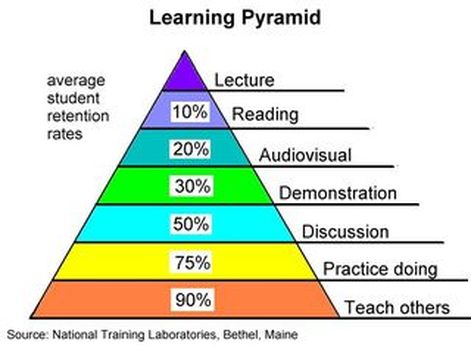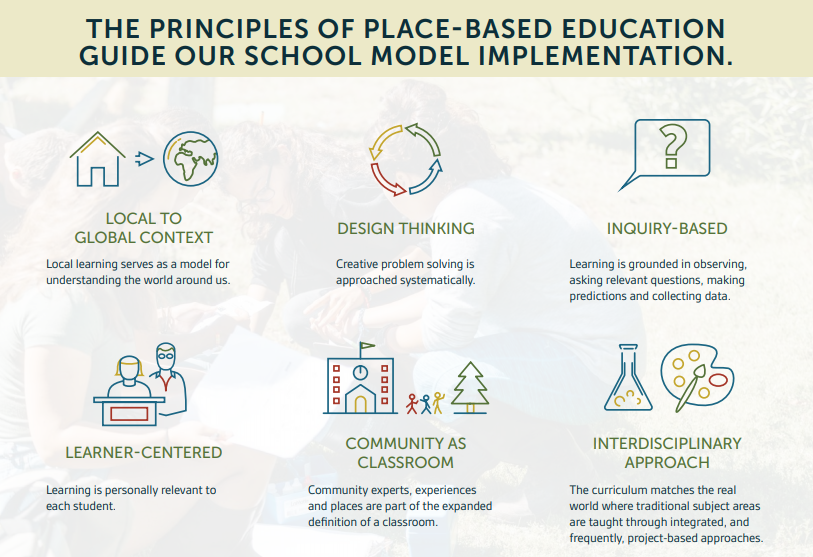
The Learning Pyramid
Instructional strategies compliment student learning behaviors. Central to this idea is to construct learning objectives using action verbs from the higher level of Bloom's Taxonomy of Learning Domains. Once students understand the fundamentals and master key vocabulary, junior high students design and deliver sustainability lessons to their elementary counterparts. Not only does this activity demand confidence and competence in the subject matter, a full-cycle of students teaching students launches all participants into higher levels of thinking.
Instructional strategies compliment student learning behaviors. Central to this idea is to construct learning objectives using action verbs from the higher level of Bloom's Taxonomy of Learning Domains. Once students understand the fundamentals and master key vocabulary, junior high students design and deliver sustainability lessons to their elementary counterparts. Not only does this activity demand confidence and competence in the subject matter, a full-cycle of students teaching students launches all participants into higher levels of thinking.
From: Teton Science Schools, https://www.tetonscience.org/
TED talk: Ken Robinson
Positive Behavioral Interventions & Support
Ruch Outdoor Community School is proud to support and integrate positive behavioral interventions and support (PBIS). One of the foremost advances in school-wide discipline is the emphasis on proactive strategies for defining, teaching, and supporting appropriate student behaviors to create positive school environments. Instead of using a piecemeal approach of individual behavioral management plans, a continuum of positive behavior support for all students within a school is implemented in areas including the classroom and non-classroom settings (such as hallways, buses, and restrooms). PBIS is an application of a behaviorally-based systems approach to enhance the capacity of schools, families, and communities to design effective environments that improve the link between research-validated practices and the environments in which teaching and learning occurs. Attention is focused on creating and sustaining primary (school-wide), secondary (classroom), and tertiary (individual) systems of support that improve lifestyle results (personal, health, social, family, work, recreation) for all children and youth by making targeted behaviors less effective, efficient, and relevant, and desired behavior more functional. Read more about PBIS at https://www.pbis.org/school.
